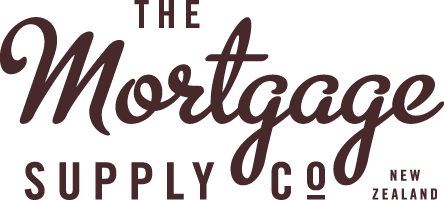
There is no doubt that COVID-19 hit New Zealand quickly, and the ramifications of it's appearance on our shores is going to have a profound impact on the property market, and the way that we operate. In fact, just this week (on April 21st), the Reserve Bank of New Zealand proposed to axed loan-to-value ratios entirely for the next 12-months, in response to the economic impacts of Coronavirus and help banks to keep lending to support customers, including with mortgage deferral.
That being said, as country we're getting ready to switch gears and transition from Alert Level 4, to Alert Level 3, and naturally in such a turbulent time, home owners, buyers, property agents and all those with a stake in the property industry are looking for answers on how each level acutely affects their situation.
In answer to this, we've put together a quick blog that summarises (to the best of our knowledge through GOVT resources, as at 21.04.20) what you can do within the finance and property industry at each level. As always, if you finish reading this and have any remaining questions at all, we'd be more than happy to answer them.
Jump to the Relevant Level:
The Property Industry at Alert Level 4
As you'll already be aware, this is the most vigilant of the four levels of restrictions. Alert Level 4 means that businesses are forced to close, all businesses that can should have their team working from home, and people aren't able to connect physically with anyone outside of their 'bubble'.
For the property industry, this means:
Settlements
- People cannot physically move houses, except in very limited special circumstances. In addition, moving companies cannot operate as they are not deemed an essential service.
- Some settlements can still go ahead during Alert Level 4 (for example, it may be possible to complete a sale during Alert Level 4 where the property is vacant land) however for the most part, most parties have agreed to defer their settlements until after we transition to a lower Alert Level. There is no automatic deferral at any Alert Level.
- The original sale and purchase agreement sets out what happens if one party is not able to settle - which may be the case due to COVID-19. The agreement may allow one party to cancel the agreement and / or seek compensation if the other party can’t complete the sale, so make sure to engage with your solicitor if this applies to you.
- Many lawyers are able to work from home at Level 4, so in most cases, it will be possible to transfer ownership electronically, although people cannot physically hand over documents or keys or meet with their lawyer in-person.
LIM Reports & LINZ Property Sale Registrations
- Although Regional Council service centres are closed for viewings, most will still accept and process requests for LIMs and property files online.
- Land Information New Zealand (LINZ) is still accepting conveyancing transactions as long as they are submitted through Landonline. Fortunately, registration is fully automated for around 85% of transactions.
Construction and Trades
- As detailed by building.govt.nz, "During COVID-19 Alert Level 4, only tradespeople and construction workers who need to carry out essential services are able to work outside of isolation".
- Tradespeople can buy building materials from retailers, for the purpose of doing essential work.
- Essential repairs and maintenance can be carried out. If the work is required immediately to ensure health, safety and well-being of people, or avoid significant environmental harm is most likely essential.
The Government defines essential business in the building and construction sector as:
- Any entity involved in building and construction related to essential services and critical infrastructure, including those in the supply and support chain.
- Any entity involved in any work required to address immediate health or life safety risks, or to prevent serious environmental harm, and relevant essential supply chain elements.
- Any entity with statutory responsibilities or that is involved in building and resource consenting necessary for the above purposes.
Finance and Advisory
- While on-site meetings aren't possible, banking services are working remotely to help with the refinancing of those in financial strain due to COVID-19.
- Similarly, mortgage advisers and insurance brokers are able to operate remotely, without contact with their clients.
The Property Industry at Alert Level 3
At Alert Level 3, much of the real estate and property industry will be able to physically operate again, however most of the Level 4 restrictions will still be in place. Below are the notable changes in restrictions from Level 4, to Level 3.
Real Estate
- Real Estate agents can open once again, but people should work from home if they can. Of course, they are now allowed on-premises and are able to enter peoples’ homes, but not have customers in the office. This opens up an opportunity for buyers and sellers, as agents are able to give virtual tours of prospective houses to buyers.
Settlements
- For settlements held up by pending builders reports and registered valuations, both of these are able to be resumed at Alert Level 3, providing health and safety measurements are taking physical distancing measures. This will help to move along the process of valuation and settlement for many parties.
- Deferred settlements may be able to resume, however the Law Society has recommended delaying settlements until after the Alert Level is lifted to level 2.
- Families are allowed to move homes once the lockdown lifts, as long as they continue to stay within their 'bubble' and social distancing measures are applied. To assist with this process, furniture movers are able to resume work on-site, providing that they're not exposed to the general public and physical distancing is enforced.
- Interaction for council related activity is not permitted physically at Level 3 and must be carried out online.
Construction and Trades
- At Alert Level 3, work should be done remotely where possible. Businesses are encouraged to use technology to carry out their work at this level.
- Where working remotely is not possible, on-site work is permitted, with appropriate health and safety measures and physical distancing measures in place for both workers and (where relevant) building occupants. You can see details on these measures, here.
- Retailers and suppliers can now sell building and construction sector goods to customers by phone/online order and contactless delivery or pickup at this level. There is to be no physical interaction with the public.
- Physical presence in your store must be restricted to tradespeople obtaining supplies for essential services only.
- In terms of repair and maintenance, you can get tradespeople to come to your home to do any repair or construction work required. However, you and your tradespeople will need to ensure the relevant public health measures at each alert level are met. This means that tradies will be able to do work that people want to get done, rather than what is absolutely necessary.
Finance and Advisory
- Mortgage advisers will continue to work remotely at Level 3. We're in touch with the banks every day, as well as key stakeholders in the property market. We're always here to help, albeit remotely, at every level. Feel free to get in touch.
- Personal and house insurance advisers are able to operate remotely, which may prove effective in allowing more buyers to obtain mortgages, if insurance is a term of their loan.
- All of the above sectors are able to visit premises tor retrieve crucial documents, but will continue to work remotely and will not interact with clients in physical presence.
The Property Industry at Alert Level 1 & 2
Please note: As the Government releases more in depth information on restrictions at 1 & 2 we will be able to provide advice accordingly. Here's what we know so far.
Real Estate
- Level 2: Agents will likely be able to provide in-home showings at alert level 2, provided that there is a cap (as advised by the GOVT) on attendees. Where possible, online viewings should continue to take the forefront.
- Level 1: Home buying and selling process will be able to resume for the most part as usual, providing physical distancing is encouraged and there are no mass gatherings of people involved (for example, at auction).
Settlements
- Level 2: The Law Society has issued interim guidance suggesting that lawyers should assist clients to agree to defer the settlement to the 10th working day after a reduction to Alert Level 2. At Level 2, the lifting of restrictions allows for on-hold settlements to continue.
- Level 1: The settlement process will be able to resume for the most part as usual, providing physical distancing is encouraged and there are no mass gatherings of people involved (for example, at auction).
Construction and Trades
- Level 2: As outlined by building.govt.nz, "At Alert Levels 1–2, most business can continue as usual provided health and safety measures are in place. Physical distancing measures are required at Level 2".
- Level 1: Interaction with the public is now permitted and building can continue as usual, however physical distancing must still be encouraged and health and safety measures must be in place.
Finance and Advisory
- Level 2: The finance and advisory sector, including the team at Mortgage Supply Co. will still be working from home where possible.
- Level 1: Interaction with the public is now permitted and a return to the office (as well as interaction with clients) can now continue as usual, however physical distancing must still be encouraged and health and safety measures must be in place.
Still have questions?
As we noted above, we understand that each of these phases go hand-in-hand with new challenges. We're here to answer any questions you might have, and clear up misconceptions. Just get in touch with one of our friendly team members.










